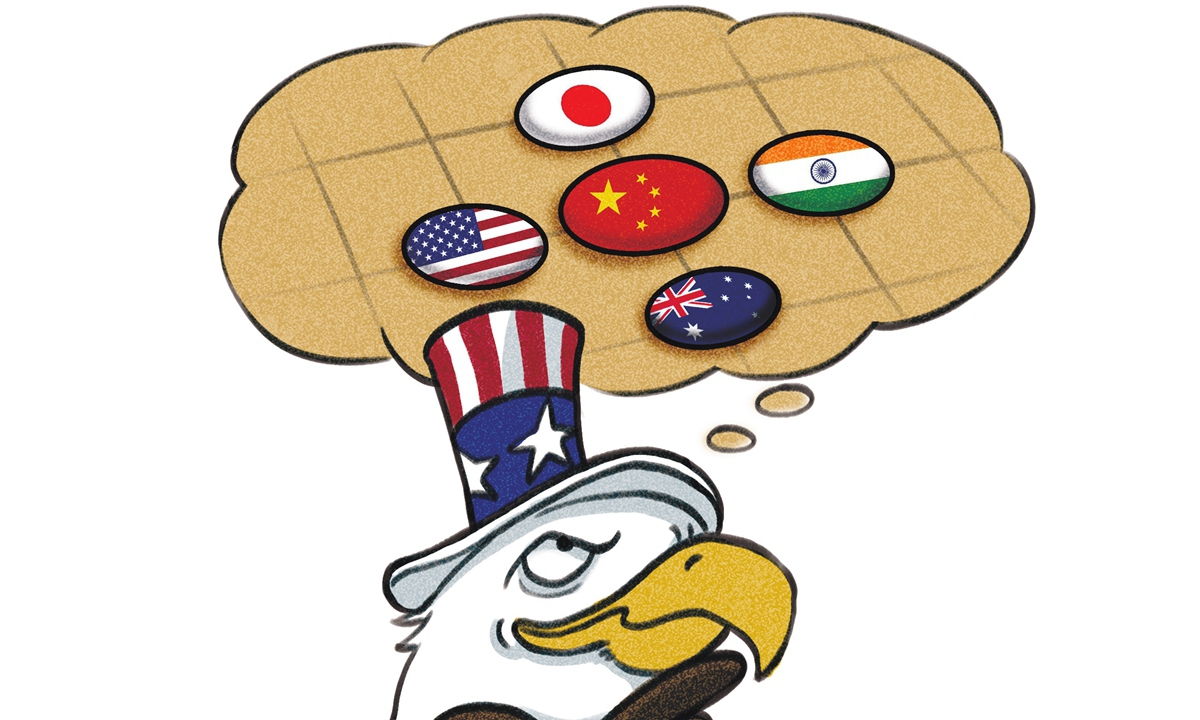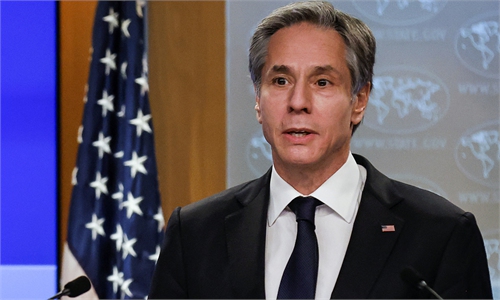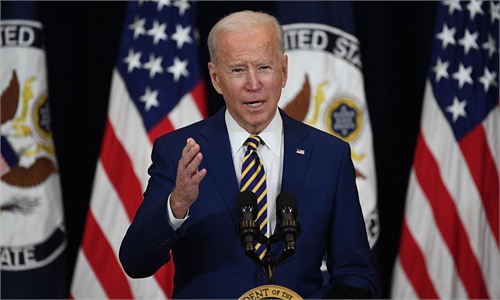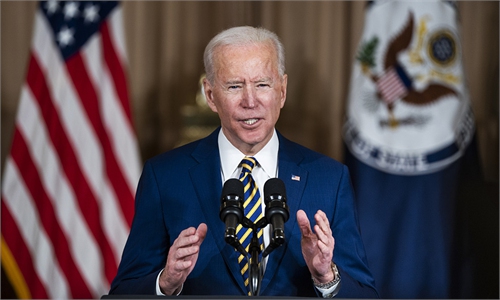
Illustration: Liu Rui/GT
The National Interest magazine published on Sunday an article discussing whether a "Pacific NATO" is the only way to counter China. It said that, "a combined US, Japanese, Australian, and Indian military force might certainly help deter China in terms of sheer numbers, not to mention coordinated air and sea operations."Since World War II, it has been a common practice for the US to deal with a certain country with an alliance structure. The reason to do so is not complicated. First, the US wants to take the so-called moral high ground by forming an alliance against a certain country.
On the other hand, Washington believes that making an alliance will stack the odds in its favor. Meanwhile, Washington also hopes other countries can help the US shift the huge burden with efforts of sending troops and sharing operational costs.
In simple words, the US is adopting wolf pack tactics. The US has made itself the alpha of the pack and hopes that more countries will join it as packmates. The more packmates it has, the more odds the US believes it will stack to itself.
From a military perspective, the above mentioned four countries do have a foundation for an alliance such as an "Asian NATO." But the key problem is that the four countries do not have an eye for the same direction. Their community of common interests can hardly be established. In other words, they lack sufficient reasons to jointly cope with a sole rival.
For instance, despite border frictions with China, India deeply knows that its economic development needs China. Japan cannot live without the vast Chinese market either. Remaining somewhat neutral without taking a side fits Japan's interests. Australia is a stern follower of the US, but due to its limited strength and influence, China does not have to care too much about it.
The National Interest article claims that these US-aligned countries, perhaps with even the addition of the island of Taiwan, could draft up an agreement somewhat analogous to NATO's Article 5 - which means collective security.
The US could view Taiwan as its ally or even include the island into one of the US-led treaties. But it needs to be pointed out that China does not promise to renounce the use of force and reserves the option to use all necessary measures. Once China resorts to forces against secessionists, the US will not necessarily come to defend them.
The US does not support China's full reunification. Nor does it support "Taiwan independence." The US does not support Taiwan to use force, either. The US would feel embarrassed if Taiwan authorities declared "independence" that prompted the PLA to solve the issue via forces. Under such circumstances, Japan, India and Australia would not get involved into Taiwan as they would invite fire onto themselves. Hence, it is difficult for the US to create an Asian NATO by exploiting the Taiwan question.
China will not make the slightest concession on this issue and will not hesitate to fight even in the face of a strong enemy. With such determination, courage and confidence, the US must not misjudge the situation. Nor should other countries follow the US' lead.
China now is making full preparations, strengthening its preparation for military struggle and training troops in order to target Taiwan secessionist forces that might someday take the "independence path."
In this scenario, the PLA will use fast and intensive methods to address the Taiwan question. No matter who gets involved, it will not stop China's determination.
China has a long-term plan for its national defense and economic development. As long as it follows the established plan, China will continue to strengthen its military capabilities, especially the ability to win wars.
What the US is doing with several other countries is in short-term. Washington is likely to change as the situation changes, so this short-term behavior is nothing to be afraid of.
China needs to study its adversaries and constantly strengthen its ability to win wars. The PLA is now increasing the frequency and intensity of its military exercises. This includes the breadth of its capabilities in joint operations as preparation for any unexpected risks in the future and potential hot issues that need to be resolutely settled.
The author is a Chinese military expert and commentator. opinion@globaltimes.com.cn



